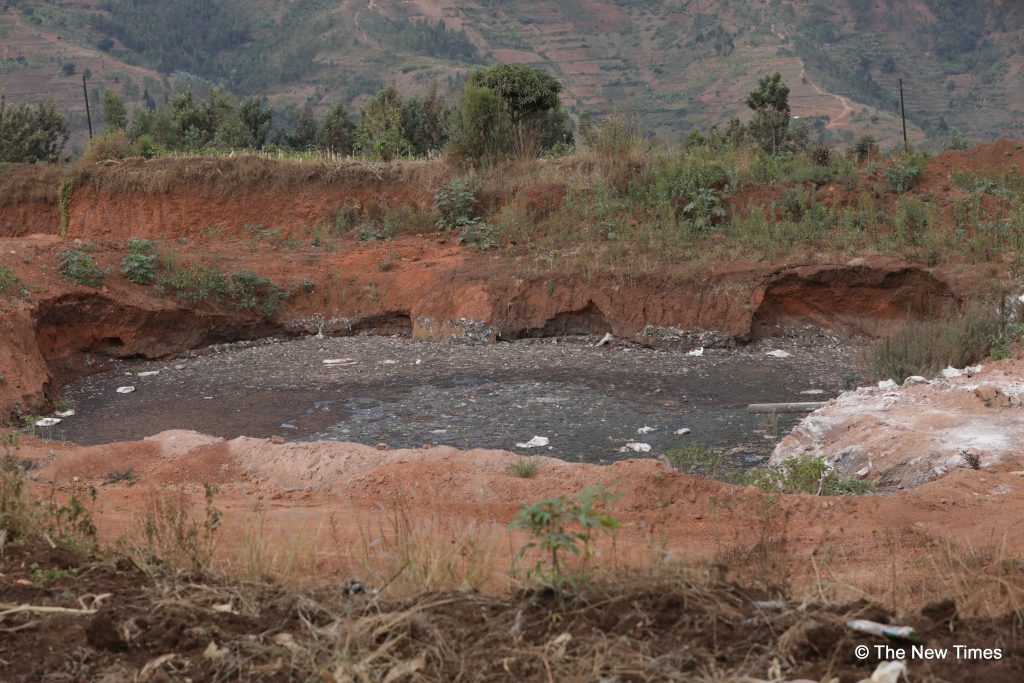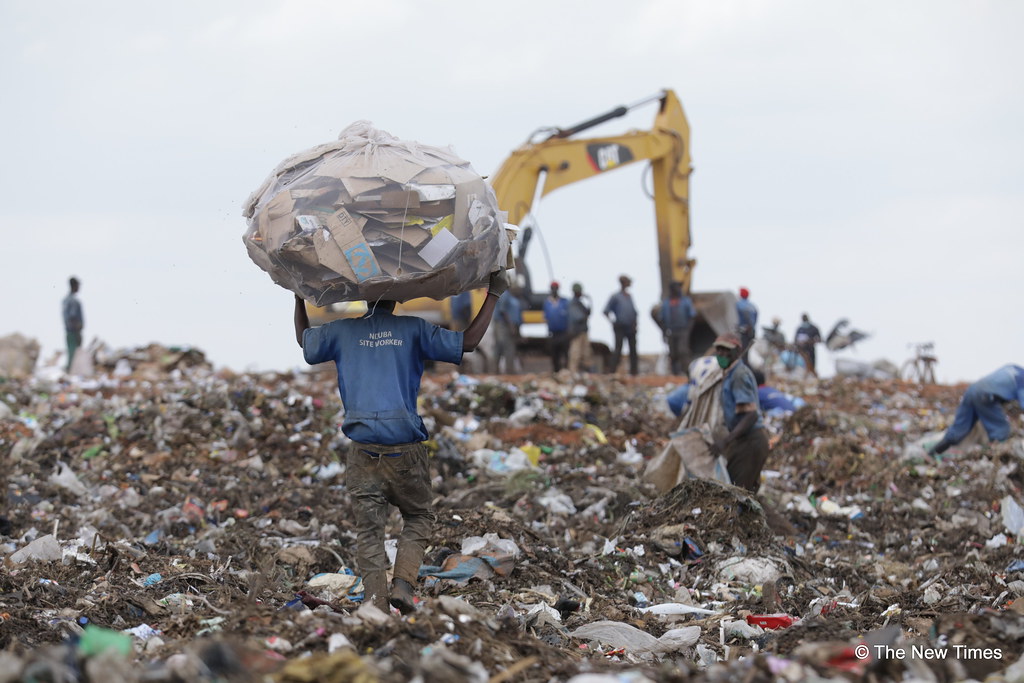In a startling turn of events, Taarifa’s in-depth investigation into the controversial cancellation of the Sanitary Landfill Project tender at Nduba in the City of Kigali, worth between US$250 million and US$500 million for a contract period of about 20 years, has unearthed a web of perplexing details, adding layers of complexity to an already contentious issue.
This is how it started.
On October 18, 2022, a Steering Committee meeting chaired by the Minister of State in charge of the National Treasury, Richard Tushabe, discussed the evaluation report of bids for the construction and management of Nduba Landfill among other topics.
Due to an issue of poor waste management in the City of Kigali, including environmental repercussions, a feasibility study was conducted to resolve the problem.
One of the recommendations was to construct a sanitary landfill and a solid waste recycling center, dubbed “Kigali Waste to Energy Project”.
A contractor would invest in the project and recoup from waste recycling fees and energy production to be sold to government at an agreeable price.
Subsequently, the City of Kigali submitted a tender for a Public Private Partnership (PPP) project.
Four companies bided for the project, and only two, Mota Engil, a Portuguese group in the sectors of civil construction, public works, port operations, waste, water, and logistics, in a joint venture with Parklane Products Development Ltd, a UK firm, and Sotravic Ltd were successful.
Swiss Green Products Distribution and Smart City Swiss did not qualify.
Notably, the committee was informed that “during the re-evaluation phase, Mota Engil, a joint venture with Parklane Products Development Ltd, scored 86.6% and Sotravic Ltd scored 82.6% in the administration and technical evaluation respectively.”
The costs were calculated using the estimated total quantity of waste to be received for the duration of the contract as per the feasibility study and the unit cost per tonne provided by each bidder.
Mota Engil joint venture with Parklane Products Development Ltd quoted US$56 per tonne of waste received at the landfill for 20 years. This means that by the end of the 20 years, the City of Kigali will have paid US$550,795,112.
Sotravic Ltd provided the cost of one-tonne in phases ranging from US$13 to US$36 where the average cost is US$28.7. This means that by the end of the 20 years, the City of Kigali will have paid an estimated US$273,430,431 or about 50% of what Mota Engil was charging.
After the meeting, the committee approved Sotravic Ltd as the successful bidder in principle, but subject to technical due diligence, including verifying whether the type of green technology proposed by City of Kigali has been used previously by Sotravic Ltd on similar projects.
Due diligence was conducted and in February this year, the city council told Taarifa the preffered bidder would be announced by May. By the end of August, the bidder had not yet been announced. A trusted source told Taarifa that there were individuals attempting to tamper with the tender in favour of another company including a local firm that had submitted an unsolicited proposal.
CoK cancels the Tender
In October, the City of Kigali abruptly cancelled the tender.
Sotravic Ltd, the company at the center of this controversy, stands steadfast in their stance against the ‘unjust’ cancellation.
“The legal foundation for this tender lies in the Public Private Partnerships law, not Public Procurement law,” highlighted Jean Marie Puran, an authorized signatory for Sotravic Ltd.
Taarifa’s scrutiny of the legal framework substantiates this claim, emphasizing the irregularities surrounding the cancellation and its deviation from established legal protocols.
Moreover, the company’s meticulous preparations and compliance with all financial and technical prerequisites have been brought to light through a meticulous examination of their documentation.
“We have met all financial and technical requirements, securing the preferred bidder status from stakeholders,” Puran further asserted, aligning with Taarifa’s comprehensive analysis, which substantiates their compliance and readiness for the project.
The assertion of consistent engagement and commitment to the project since 2015 resonates deeply with Taarifa’s findings. The extensive timeline and documented efforts by Sotravic Ltd paint a picture of steadfast dedication, contrary to the implications of insufficient efforts leading to the cancellation.
Despite their earnest endeavors, Sotravic Ltd found themselves facing the abrupt cancellation decision.
“The cancellation at this advanced stage inflicts significant prejudice due to substantial resource mobilization,” Puran lamented.
Taarifa’s in-depth research corroborates this claim, outlining the extensive investment and preparation made by the company, underscoring the severe implications of this unexpected setback.
Furthermore, the emergence of a local company’s proposal before the official cancellation announcement in July 2023 raises alarming questions about the transparency and integrity of the entire tendering process.
Taarifa’s investigation uncovered this startling fact, indicating potential irregularities and undermining the fairness of the bidding process.
After approval of the preferred bidder by the steering committee, the contracting authority has the mandate or obligation to invite the approved preferred bidder for contract negotiations and signing.
Therefore, the CoK was under legal obligation to invite Sotravic for contract negotiations and signing after the steering committee approval of October 18, 2022.
CoK irrespective of its legal obligation, and several reminders requesting for update refused to invite Sotravic for negotiations and signing instead, after 12 months, cancelled the tender on allegations that the expected period for tender award exceeded. This is contrary to article 23 and 24 of PPP law.
Amidst these revelations, the lack of response to Sotravic’s over four letters to the city council raises profound concerns about the transparency and accountability of the authorities involved.
Taarifa’s meticulous inquiries and examination of correspondence between the company and the council validate this startling silence, echoing the company’s frustration and reinforcing doubts about the transparency of the decision-making process.
As Taarifa delves deeper into this labyrinth of information, reports have emerged about the new mayor’s attempts to uncover the truth behind the cancellation. However, suspicions loom large as it’s been alleged that technicians involved may have supplied misleading information.
Taarifa’s sources corroborate this, signaling potential misinformation in the investigation and raising crucial questions about the credibility of the information provided to the mayor.
In a distressing development, a security guard reportedly fell into the open landfill and lost his life. This tragic incident further underscores the urgency of resolving the landfill issue and implementing effective waste management measures.
The intricate details, coupled with Taarifa’s in-depth investigation, shed light on the intricate layers of this controversy, underscoring the need for a transparent, impartial, and comprehensive inquiry to unravel the truth behind this puzzling saga.
Compounding the complexity of the situation is the revelation that the steering committee had recommended and approved Sotravic Ltd as the preferred bidder.
This crucial detail underscores that the City of Kigali may not have had the authority to unilaterally cancel the tender without seeking permission or providing clear justifications for such a drastic decision.




















